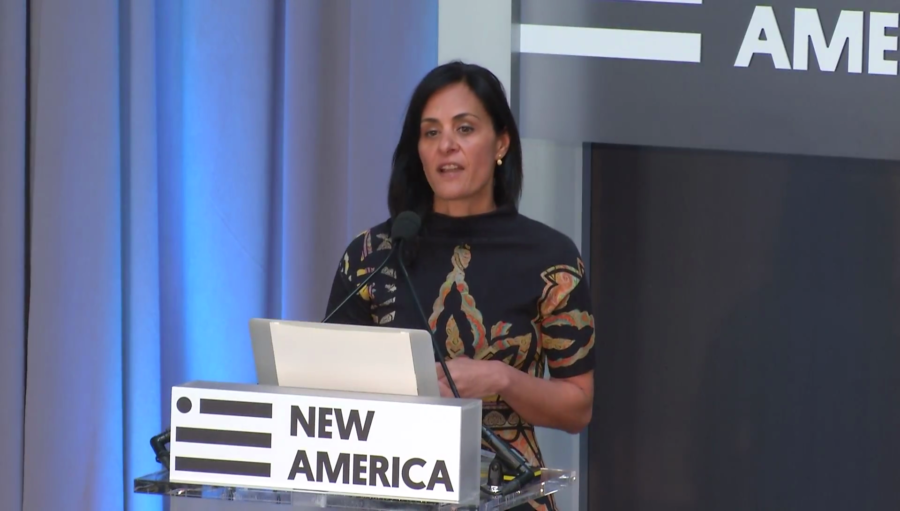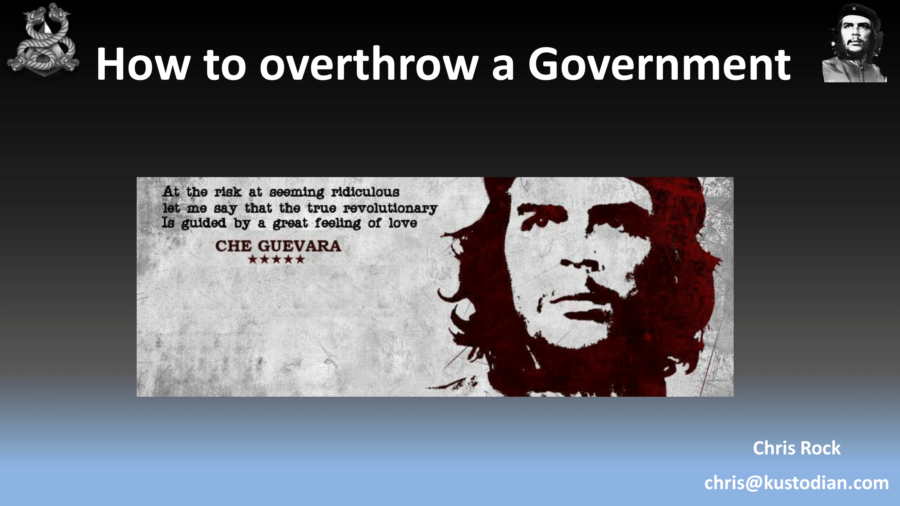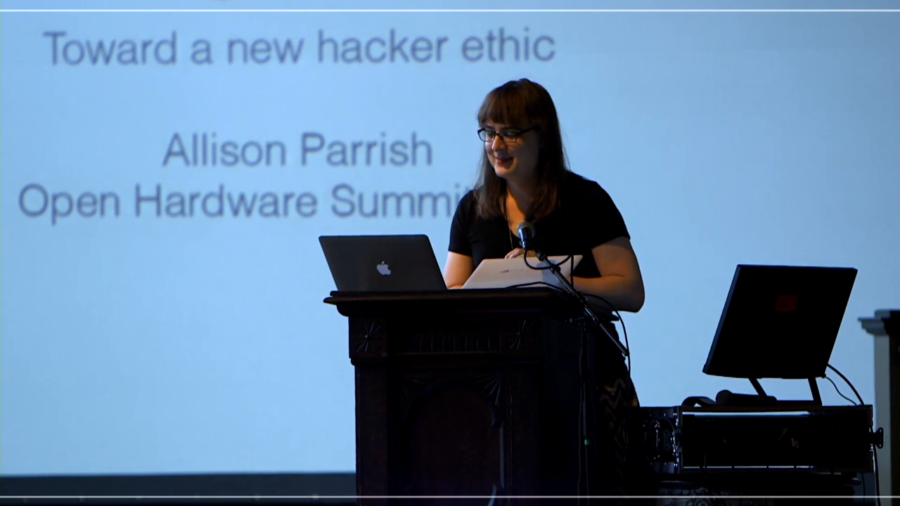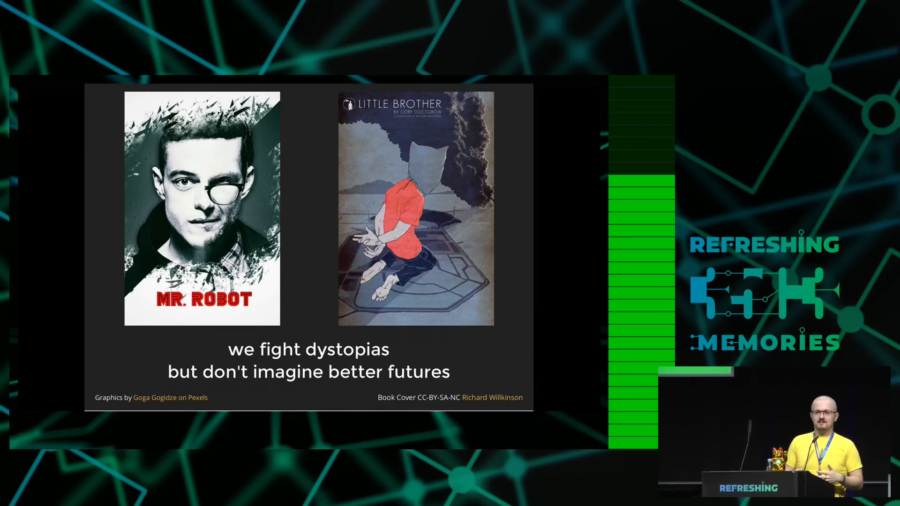We have a lot of proposals on how technology should work in this society, how we want to avoid all the dangers we can see that others cannot see. But we do a very very bad job at communicating it.
Archive

We have basically lost control over our network. All of the advances that have made our lives more productive, more accessible, more connected, have fundamentally disintermediated our ability to protect our environments. The democratization of information, of technology, of goods and services, of banking, of financial transactions with blockchain etc., means every aspect of our lives has become accessible and therefore vulnerable.

I don’t want to live in a world where ISIS is scarier than hackers, especially in 2016. We previously held the title in 2013, ’14, and ’15. And to be honest I was a little bit disappointed when I saw this result. So I thought I’m in my 40s now, there’s a lot of young hackers in the audience, and I’m not going to pass the baton to you guys unless we have that number one spot back in our pile.

I wouldn’t be surprised to find out that many of us here today like to see our work as a continuation of say the Tech Model Railroad Club or the Homebrew Computer Club, and certainly the terminology and the values of this conference, like open source for example, have their roots in that era. As a consequence it’s easy to interpret any criticism of the hacker ethic—which is what I’m about to do—as a kind of assault.
I think at a fundamental level I just believe in human agency. And I think that everyone should feel like they can participate and shape the economy, rather than feel like they’re experiencing symptoms of the economy. When the recession happened, there was all this chatter around well, the Fed is going to do this. Or the banks are going to do this. And government is going to do this. And there was no narrative around what people are going to do.

